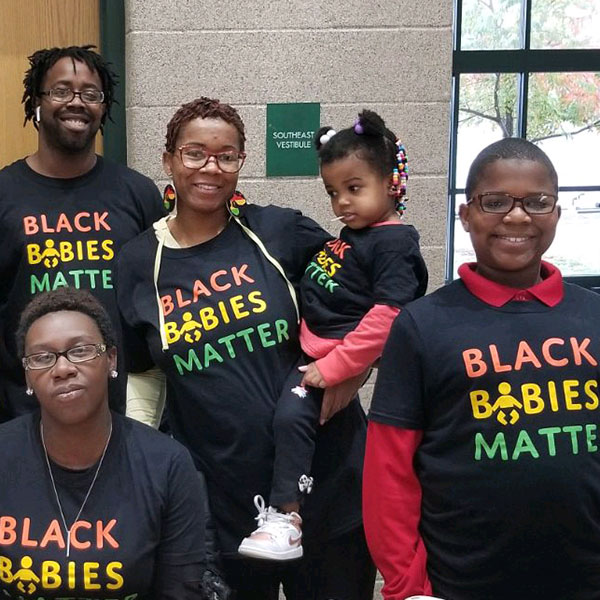Generate Health a Champion of Family and Community
“If we continue doing the same thing, we’ll continue to see the same results. And I’m not satisfied with the results,” says Kendra Copanas, Executive Director of Generate Health. The organization is leading the charge to improve outcomes in infant mortality and maternal health for Black and brown families through a Home Visiting Collaborative. YouthBridge has provided a three-year, $240,000 Think Big for Kids grant to help support the infrastructure and long-term sustainability plan of the collaborative.
“YouthBridge has been one of a few local funders to participate in this idea from the beginning and has been advising us on how to bring in additional funders and shape the narrative for them,” says Copanas. “We owe a great deal of thanks to them and the other investors in this endeavor, which we believe has potential for significant impact.”
Generate Health is a nonprofit coalition working to mobilize the St. Louis region around advancing racial equity in pregnancy outcomes and child wellbeing. Copanas says in the late 1990s an increase in infant mortality rates and policy changes that impacted maternal health access and utilization for many families of color raised alarm bells. “We know that not all families in our region have the same shot at being healthy in life. The need became clear for a central entity that would organize efforts and lead collaborations to address the root causes of racial disparities in this area, and to be a champion for moms, kids and families,” she says.
Despite advances in medical care, public health and home visiting, the gap between black and white birth outcomes in St. Louis has widened over the past 50 years. Black babies die at a rate three times that of white babies, and Black women are three to four times more likely to die at time of pregnancy. The causes are numerous and run deep, says Copanas, including lack of early prenatal and postpartum care, transportation, safe housing, nutritious food, treatment for substance abuse and mental health disorders, accumulated high stress of racism and trust in the healthcare system. “Medical mistrust is real and not just related to a legacy of mistreatment, but to current experiences of Black people being undertreated, ignored or discounted by providers,” says Copanas.
Bringing parents and community members to the table to better understand the challenges and search for solutions is the only way to ensure that efforts will have the greatest impact, she says. Parents join healthcare practitioners and providers, businesses, community groups and other members that Generate Health has convened to accelerate positive change. Priorities include educating service providers and community leaders, advocating for policies that eliminate racial disparities, and setting the model – the “North Star,” Copanas calls it – for an equitable system that protects the health of mother and child.
Generate Health has led initiatives that have addressed childhood immunization, healthy and sustainable homes, early access to prenatal care, and perinatal mood and anxiety disorders. Created in 2013, Copanas says the Perinatal Behavioral Health Network is providing the model for the Home Visiting Collaborative, as is a similar collaborative in Kansas City that’s had success.
“Home visiting programs have a unique opportunity to reach families and to improve maternal and child outcomes,” she says, “yet many programs are struggling to identify families in need of services and meet their complex needs.” The problems she cites are lack of a coordinated referral and intake system, shared data and outcomes, and stable funding, all gaps the collaborative is seeking to close.
“Through the establishment of our Perinatal Behavioral Health Network, women in need of services are being identified, accessing appropriate support and treatment, and improving their daily functioning – the same outcomes we’re hoping to achieve through the Home Visiting Collaborative by designing a more effective, equitable system,” says Copanas.
While many coalitions have come and gone in the region, Copanas says she is proud of the relationships and trust that Generate Health has cultivated for more than 20 years…and its role in shifting the balance of power to families. “If we want our area to be economically strong and grow socially, we need to be a community concerned with the health of all women and babies, where people want to raise a family, work and live.”
If you would like to donate or have any questions about this organization, please contact Allison McDonald.
